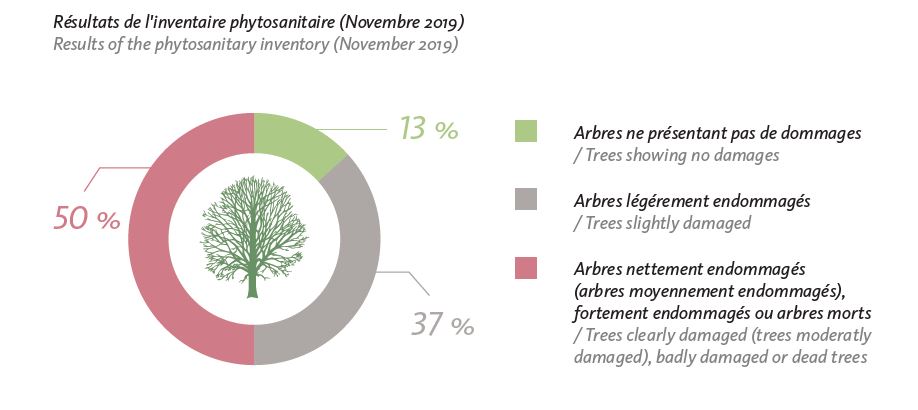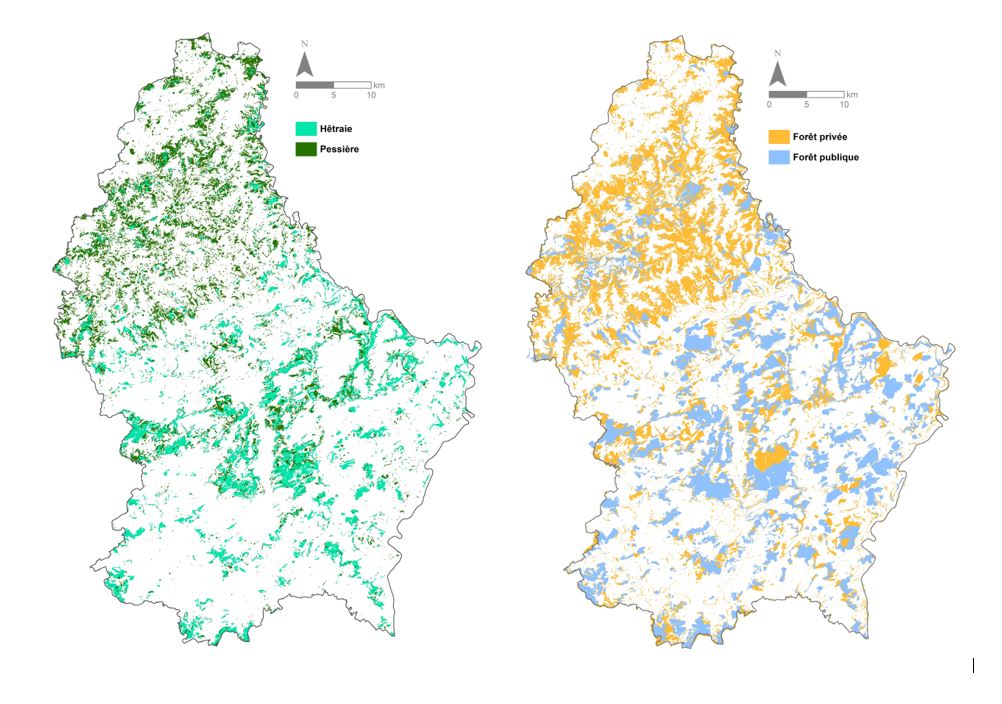Luxembourg's forests in critical condition

The latest phytosanitary inventory published by the Administration of Nature and Forests has fallen like a log: 87 % of the trees observed are damaged, and more than half of them show a degraded state of health. Only 13 % of the trees are intact. The observation of the crowns thus reveals an unprecedented foliar deficit. The state of foliage is particularly worrying for beech trees - only 3.4 % of them are intact - and conifers.
The jewel in the crown of what used to be called the Forest Department is now on alert. Experts are focusing on the repeated droughts, particularly during the last two summers. In a state of water stress, trees become vulnerable and prey to pest attacks. Coniferous trees are thus the target of insects that dig galleries under the bark and prevent the circulation of sap. It is a widespread phenomenon in Europe where bark beetles and other chalcographers have invaded many forests and decimated them from Scandinavia to the Czech Republic.

The timber industry is thus severely impacted, and we now speak of a real "bark beetle crisis" affecting the resin cover of Europe. To face this unprecedented situation, the government announced a series of measures grouped as the "Klima-Bonus" programme. They are aimed mainly at private forest owners to encourage them to diversify their plantations. The focus is on spruce monoculture plantations, which are particularly vulnerable and must gradually give way to mixed stands to increase the resilience of Luxembourg's woodland cover. Also, being examined are the definition of a new legal framework for forests, protection against fire, or the reduction of game pressure on the ecosystem.

Left map - Beech trees and spruces suffer particulary from repeated droughts. / Right map - Public and private forests distribution in the Grand-Duchy.
In Luxembourg, forests represent more than 1/3 of the territory, i.e. 90,000 ha
of damaged trees
of hardwood
of softwood
of private forests
in the wood sector
(Sources : ANF, PNDD)
Also to be read in the dossier "The Hindered Power of Trees":



